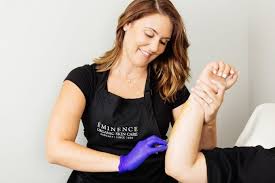Minimising the risk of cross infection
> Wash your hands, before and after treating a casualty
>Wear disposable non-latex gloves for first aid use: nitrile gloves are
recommended. If gloves are not available, ask the casualty to dress their own
wound, or enclose your hands in clean plastic bags
> Cover cuts and grazes on your hands with waterproof dressings
> If there are large quantities of body fluids, wear a plastic apron and plastic
glasses to protect your eyes
> Dispose of all waste safely. Soiled material should be placed in a yellow
(biohazard) bag for incineration. Used needles should go in a sharps container.
The emergency services may take the waste with them for proper disposal, and
your local council should have facilities
>Do not touch a wound with your bare hands > Do not touch any part of a dressing that will come in contact with a wound
>Do not cough or sneeze over a casualty while you are treating them. In
particular, avoid breathing, coughing or sneezing over an open wound.

Hand washing

Bare arms
Healthcare staff, including those working in community and primary care, must not wear jewellery, rings with stones, acrylic nails, wristbands and watches. Arms should be bare below the elbow to facilitate hand hygiene.
Hand washing reduces the risk of infections passing between a first aider and a casualty Self-care
Following a more serious first aid incident and depending on the outcome, some
first aiders can experience a range of emotions. You may go through what happened
again and again in your mind, so it may be useful to talk to someone else who
may have been there at the incident or someone you know has been in a similar
experience.
This is especially important if the outcome was not what you hoped for. Even with
the correct treatment and however hard you try on some occasions a casualty will
not recover from the injuries or illness. If you are finding it hard to deal with what
has happened you should seek support, if your workplace has a mental health first
aider they may be able to help signpost you to appropriate support and maybe a
good person to talk to, other options include your GP, a counsellor or any support
mechanisms that your company may have in place.